A recent report by “Zero Waste Europe” and “FOE Europe” reveals that the rise in plastic food packaging in Europe is failing to reduce the continent’s growing food waste problem, and in some cases may even be fueling it.
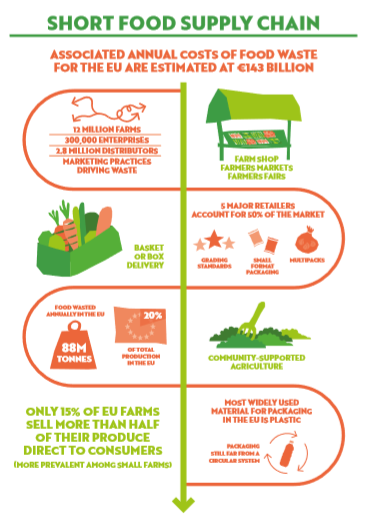
The waste supply chain | © Friends of the Earth Europe
The study, titled Unwrapped: how throwaway plastic is failing to solve Europe’s food waste problem (and what we need to do instead), was conducted over a 10 year period between 2004 – 2014 and demonstrated that in this time, household food waste doubled to an estimated 30 million tones per year, while plastic packaging waste increased by 50%, at 15 million tonnes. According to the report, the data suggests that almost half of plastic waste is directly from food packaging.
These levels of waste are not only expensive – estimated at a €143 billion loss for the EU annually, the same amount as its annual operational budget – but are highly problematic for both waste management and the environment. Plastic packaging is often touted as a solution to avoid food waste, but this landmark study indicates exactly the opposite – plastic waste is nearly always thrown away after its first use, and levels of food waste across the region are at all-time-high levels. What’s more, the report investigated other consequences of plastic wrapping, such as the growing risk to consumers from chemical migration into the body.
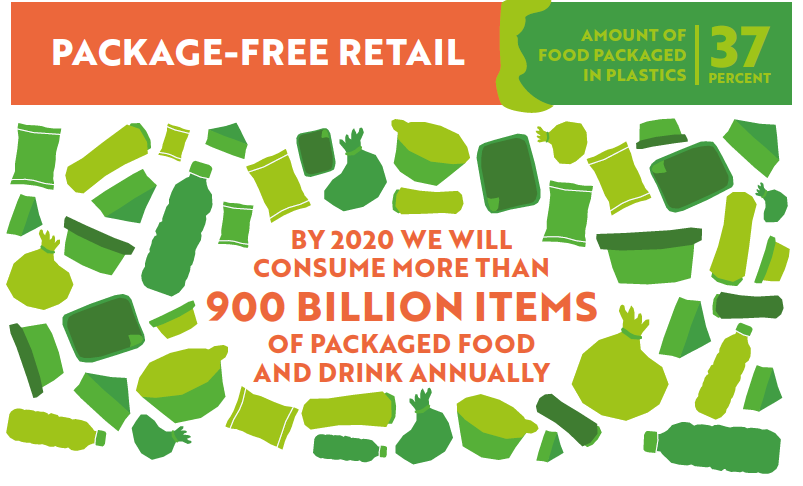
Overpackaging in retail | © Friends of the Earth Europe
The problem is complex and entrenched, however, and the challenges of food waste and plastic packaging waste are best tackled together by evolving our view of plastic in the food industry. The study’s authors draw several recommendations that begin with simple acknowledgement of the issue, and revolve around changing our communal attitude to our relationships with plastic and food waste.
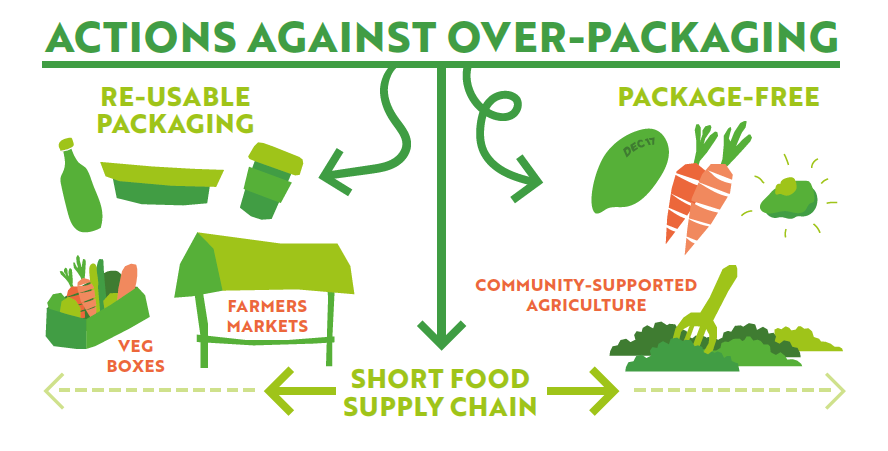
Actions Against Overpackaging | © Friends of the Earth Europe
Key actions recommended by the study include:
- Develop a holistic, evidence-based approach to the role of plastic packaging in the food system
- Policymakers must review legislation to assess and address gaps
- Use market-based instruments to prompt behavioral change
- Provide greater investment and funding for waste prevention systems
While high-level action can guide the way, tackling the problem of waste in our everyday lives is up to individual choice and action. Households can change their purchasing and consumption behaviors and implement reusable approaches to food preservation, and choose to purchase groceries and other items from responsible and environmentally-minded businesses.
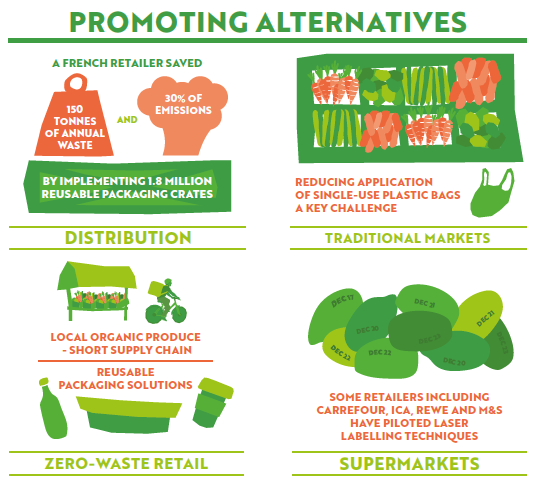
Promoting alternatives | © Friends of the Earth Europe
Check out the full report, available here in Danish, Spanish, English, French, and German to learn more about this groundbreaking study and what its authors believe is the best way forward.

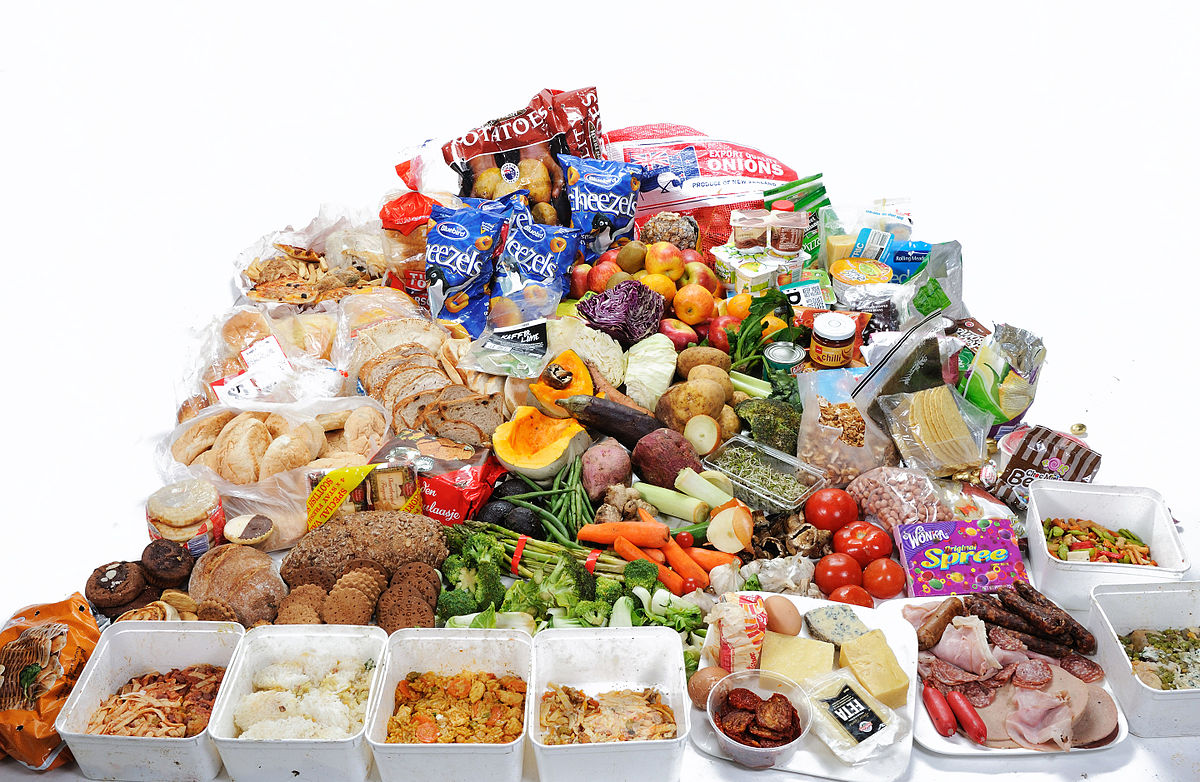
Join the conversation